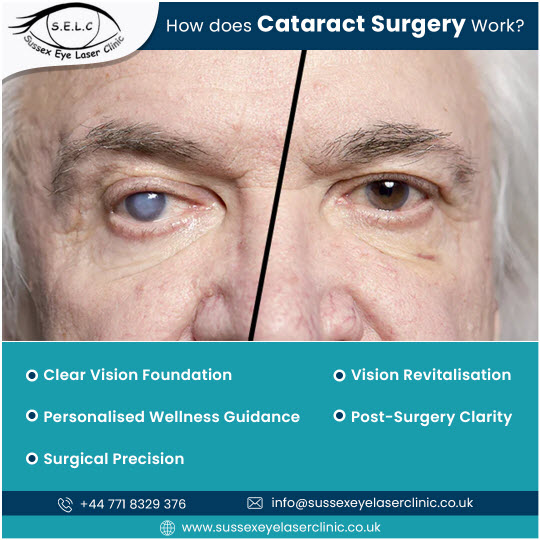How Long Does a Cataract Operation Take to Heal?
The duration of cataract surgery recovery varies from person to person, but a general timeline can provide insights. From the immediate post-operative care to long-term considerations, let’s delve into the comprehensive recovery process.
A Complete Timeline of Your Cataract Surgery Recovery
Immediate Post-Operative Care
After the surgery, the initial recovery phase is critical for a successful outcome. Here’s what you need to focus on during the immediate post-operative period:Rest and Relaxation: It’s essential to allow your eyes time to heal. Avoid strenuous activities and opt for activities like reading or watching TV that don’t strain your eyes.
Wearing Sunglasses: Shield your eyes from bright light and glare by wearing sunglasses, even on overcast days. This helps protect your eyes during outdoor activities.
Eye Drops: Follow the prescribed schedule for applying medicated eye drops. These drops are crucial for reducing the risk of infection and inflammation. Always ensure your hands are clean before instilling drops.
Avoid Touching or Rubbing the Eye: Touching or rubbing the operated eye increases the risk of infection and other ocular complications. Exercise caution to promote a smooth recovery.
Protective Eyewear at Night: Continue wearing the eye shield provided at the hospital during sleep. This precaution prevents accidental rubbing and further ensures a safe recovery.
Avoid Swimming and Hot Tubs: Steer clear of swimming pools and hot tubs in the initial days to minimize the risk of infection.
Maintain Hygiene: Keep the eye area clean and dry to prevent infection. However, avoid direct water contact with the eye for the first few days.
Follow-up Appointments: Schedule and attend follow-up appointments with your surgeon as advised. These appointments are crucial for monitoring the healing progress and addressing any concerns.
Is Recovery from Cataract Surgery Painful?
In general, cataract surgery recovery is not painful. Patients may experience some discomfort or mild irritation, but severe pain is rare. The prescribed pain relief and anti-inflammatory medications, along with adherence to postoperative care instructions, contribute to a relatively pain-free recovery.
Using Your Eye Drops Post-Cataract Surgery
Proper use of prescribed eye drops is crucial for a successful recovery. Follow the recommended schedule diligently, as these drops aid in preventing infection, reducing inflammation, and promoting optimal healing.
Steps to Ensure a Good Recovery from Cataract Surgery
To ensure a comfortable and efficient recovery from cataract surgery, kindly consider these gentle recommendations:
Handle with Care: Please refrain from rubbing or applying pressure to your eye.
Follow Medication Instructions: Use the prescribed eye drops or medication as per your healthcare provider’s guidance.
Embrace Eye Protection: Wear the recommended eye shield, particularly during sleep, to promote optimal healing.
Take it Easy: For the initial week post-surgery, avoid engaging in strenuous activities or lifting heavy objects.
Guard Against Light and Debris: Safeguard your eyes from bright sunlight, dust, and debris for a more comfortable recovery.
Punctual Follow-Up Appointments: Attend all scheduled follow-up appointments with your consultant to monitor progress.
Secure Transportation: Ensure someone is available to drive you home promptly after your surgery for your convenience and safety.
Return to Work Thoughtfully: Resume work only when your eyes are sufficiently recovered to accommodate the demands of your job.
Mindful Exposure: Be cautious to avoid exposing your eyes to dust or fumes, especially while engaging in activities like cooking or housework.
Your adherence to these considerate measures will greatly contribute to a smooth and successful recovery process.
In conclusion, a successful recovery from cataract surgery requires diligence and adherence to postoperative care instructions. By prioritizing rest, following prescribed medication schedules, and attending follow-up appointments, you can enhance the likelihood of a smooth and complication-free healing process.
Frequently Asked Questions About Cataract Surgery
Is cataract surgery recovery painful?
Cataract surgery recovery is generally not painful. Discomfort or mild irritation may occur, but severe pain is rare.
How long should I use eye drops post-cataract surgery?
Follow the prescribed schedule for eye drops diligently, typically for a few weeks as directed by your surgeon.
Can I drive immediately after cataract surgery?
It’s advisable to arrange for someone to drive you home after surgery. Your surgeon will provide guidance on when it’s safe to resume driving.
Are there restrictions on exposure to sunlight post-surgery?
Protect your eyes from bright sunlight, but your surgeon will advise on specific guidelines based on your recovery progress.
